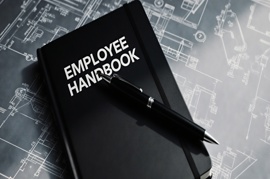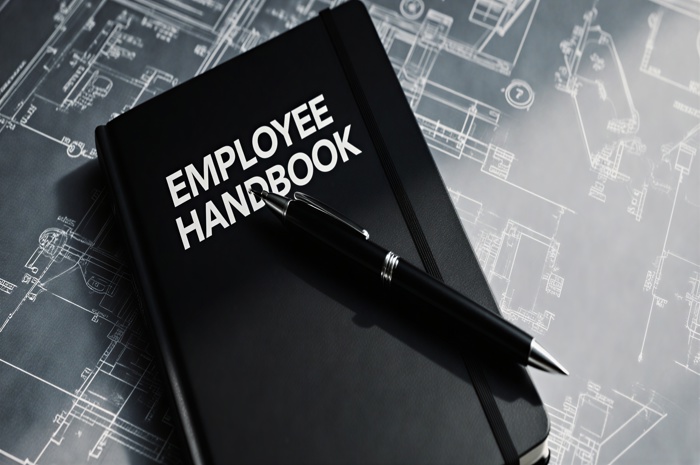What Is A Micro Business?
In the UK, a micro business refers to a business that meets certain criteria set by Companies House. These criteria are defined by the Companies (Micro-Entities) Regulations 2013, which set out the financial thresholds a business must meet in order to qualify as a "micro business."
As of April 2025, for a company to be considered a micro business, it must meet at least two of the following three conditions:
1. Turnover: Not exceeding £1 million per year.
2. Balance Sheet Total (Assets): Not exceeding £500,000.
3. Number of Employees: No more than 10 employees.
Businesses that cannot file micro business accounts:
- Charities
- Public Limited Company's (PLC's)
- Limited Liability Partnerships (LLP's)
- Investment Undertakings
- Overseas Company's
- Unregistered Company's
- Subsidiaries of larger parent companies that are accounted for in the groups accounts.
Micro businesses benefit from simpler reporting and compliance requirements (FR105). For example, they can file simpler financial statements with Companies House, which may consist of just a balance sheet and a basic profit and loss account, rather than the more detailed financial statements required for larger companies. These requirements help reduce the administrative burden on the business.
Benefits Of A Micro Business
Running a micro business in the UK offers several benefits, especially for small business owners and entrepreneurs. Here are some of the key advantages:
1. Simplified Reporting and Compliance
Easier Accounting: Micro businesses benefit from reduced accounting and reporting requirements (simplified balance sheet and profit & loss account).
Less Filing Obligations: You can file less detailed financial statements with Companies House, which reduces paperwork and administrative time.
2. Lower Costs and Fees
Cheaper Registration: The cost of registering a micro business with Companies House is relatively low (£54.99 + VAT online registration).
Reduced Filing Fees: The fees for submitting annual accounts and confirmation statements are lower for micro businesses compared to larger businesses. This is due to the accountancy fees associated with larger companies, whereas, with micro businesses you can use affordable and easy to use software to file your taxes.
3. Limited Liability Protection
Personal Asset Protection: Like other limited companies, micro businesses provide limited liability for the owners. This means your personal assets are protected from business debts and liabilities.
4. Eligibility For Special Schemes
Simplified VAT Options: If your turnover is below the VAT threshold, registering for VAT is not required, saving you time and administrative effort.
5. Flexibility And Control
Fewer Regulations: Micro businesses are not subject to the same extensive regulations and reporting requirements as larger companies, allowing for greater flexibility.
In summary, micro businesses offer lower costs, simplified compliance, personal liability protection, and flexibility for entrepreneurs. They provide an excellent starting point for small-scale ventures, with the potential for growth and future expansion.
Registering A Micro Business
Decide on company type and name: Most micro companies register as a Private Limited Company (Ltd). There are approximately 5.5 million small businesses in the UK, making it difficult to find an available name. To check the availability of a limited company in real-time, simply click here.
Prepare required documents: Memorandum of Association (agreement to form the company), Articles of Association (company rules), Registered Office Address (must be in the UK), Directors (at least one must be over 16).
Register with Companies House: This can be done through our user friendly software.
Register for taxes: Corporation Tax with HMRC (within 3 months of starting any business activities). VAT registration (if turnover exceeds £90,000).
File annual documents: Confirmation Statement (file annually). Simplified Annual Accounts (balance sheet and profit & loss).
How Does A Micro Business File To HMRC And Companies House?
Filing taxes as a micro business in the UK involves several steps, depending on the structure of your business. Here’s a general guide on how a micro business can file taxes to HMRC:
1. Register with HMRC: If your business is a limited company, you need to register with HMRC as a company and file for Corporation Tax when you start trading.
2. Keep Accurate Records: As a micro business, you must keep detailed records of your income and expenses. This can include sales receipts, invoices, bank statements, and any business-related payments or purchases. You can keep records manually or using accounting software.
3. File Your Tax Return: Limited companies must file a Corporation Tax Return (CT600) with HMRC. This return reports the company’s profits and tax due. You must file your Corporation Tax Return within 12 months of the end of your accounting period. Corporation tax is typically due 9 months and 1 day after the end of your company’s accounting period.
4. Use Online Services: You’ll need to create a HMRC online account and file your return electronically. Easy Digital Filing provide online services for Corporation Tax filing.
5. Get Professional Advice: If you’re unsure about how to file or which forms you need, it’s always a good idea to consult an accountant or tax professional who specialise in micro businesses.
By keeping good records and submitting your returns on time, you can ensure your micro business remains compliant with HMRC requirements.
How Many Micro Businesses Are There In The UK?
As of the most recent data (2024), there are around 5.5 million private sector businesses in the UK and a significant proportion of these can be classified as micro businesses.
According to government data, 95% of all businesses in the UK fall into the micro business category. This translates to approximately 5.2 million micro businesses operating in the UK.
These businesses make up a substantial part of the UK economy, particularly in terms of employment and innovation, even though they tend to have smaller revenue compared to larger businesses.
If you're looking for the most up-to-date and specific numbers, sources like the Office for National Statistics (ONS) or the UK Government's Department for Business regularly publish detailed reports on the UK business landscape.
Looking For More Information?
Hopefully this article has helped clarify what a micro business is and how you can make the most of its features. For more information on topics related to micro businesses, feel free to explore our Knowledge Base. If you're looking to set up a new company to start your micro business, you can easily do so through our affordable Incorporation Service at Easy Digital Company. If you have any additional questions about incorporating a small or micro business, don't hesitate to reach out to us here.
This article is information only and has been prepared for general guidance on matters of interest only, and does not constitute legal, accounting, tax, investment or other professional advice or services. You should not act upon the information contained in this article without obtaining specific professional or legal advice. No representation or warranty (express or implied) is given as to the accuracy or completeness of the information contained in this article, and, to the extent permitted by law, Comdal Limited, its members, employees and agents do not accept or assume any liability, responsibility or duty of care for any consequences of you or anyone else acting, or refraining to act, in reliance on the information contained in this publication or for any decision based on it.





















